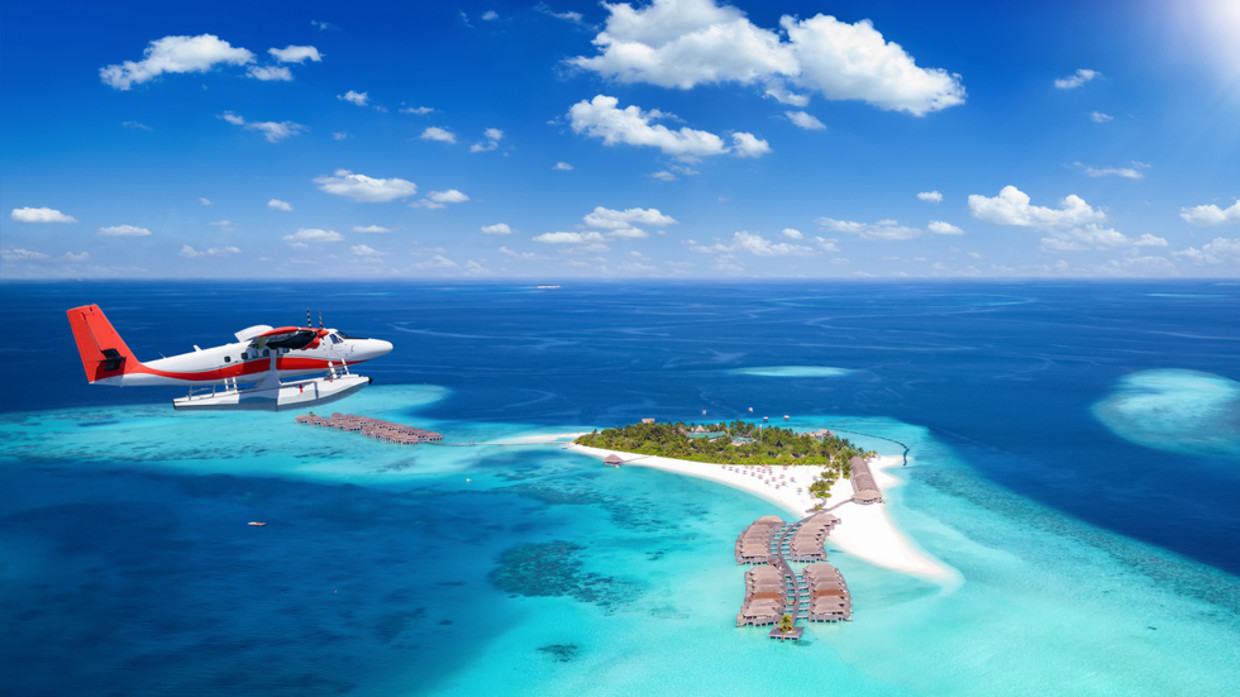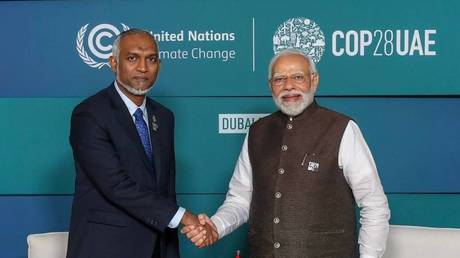The archipelago nation of Maldives, a popular tourism hotspot in the Indian Ocean, has appealed to Indian travelers to visit the nation and support its economy. The request comes despite an ongoing dispute between New Delhi and Malé, which is seen as forging a stronger partnership with Beijing under President Mohamed Muizzu.
Maldivian Tourism Minister Ibrahim Faisal, speaking to the Indian news agency PTI on Tuesday, affirmed that the Maldives would give a “warm welcome” to Indian tourists. “I want to tell Indians to please be a part of Maldives’ tourism; our economy depends on tourism,” he said.
The minister’s plea comes in light of a sharp drop in the number of Indian visitors to the resort islands after a diplomatic row erupted earlier this year, leading to travel companies and tourists boycotting the country. Several ministers in Muizzu’s government in January posted on social media comments directed against Indian Prime Minister Narendra Modi that were seen as “derogatory” by New Delhi.
While Indians accounted for the largest number of foreign tourists visiting the islands at the start of the year, they fell to sixth place after the diplomatic spat. A report in the Hindustan Times noted that 34,847 Indians visited the Maldives in the first quarter of this year, down from 56,208 over the same period last year.
The dispute between the two nations stems from Muizzu’s policy of reducing Indian influence over the islands while moving closer to Beijing, which has promised large investments in the country’s infrastructure. After coming to power last year, Muizzu asked India to withdraw around 80 military personnel deployed to operate and fly two Dornier aircraft and a helicopter given to the Maldives by India for emergency evacuations. They are now being replaced with civilians.
Muizzu earlier this year remarked that no country had the license to “bully” it in what was seen as reference to New Delhi. The Indian foreign minister responded, also indirectly, suggesting that “bullies don’t provide $4.5 billion when neighbors are in trouble.” He was referring to India’s Neighborhood First Policy under which it has over the last decade bailed out Bangladesh and Sri Lanka when they faced financial crises, supplied Covid-19 vaccines, invested in infrastructure projects, and continued supplying them critical food items despite domestic shortage and global export bans.
Meanwhile, the Maldives has also found itself at the center of the India-China standoff in the region. In January, New Delhi raised concerns over alleged “spying” activities of a Chinese research vessel heading to the Maldivian capital of Malé. New Delhi has recently commissioned a second naval base in the Lakshadweep Islands off its west coast, in close proximity to the Maldives.
Where India Meets Russia – We are now on WhatsApp! Follow and share RT India in English and in Hindi


